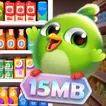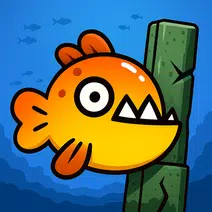How to Win Word Solving Games
In an age driven by technology, mental sharpness is more important than ever. Word solving games aren’t just a fun way to pass time—they’re a secret weapon for enhancing vocabulary, sharpening critical thinking, and exercising your brain. From Scrabble to Crosswords and Boggle, these games challenge your linguistic creativity. In this post, How to Win Word Solving Games, we'll show you everything you need to conquer word-solving games!
★ What is Word Solving Games:
Word solving games are any games that require players to form, guess, rearrange, or deduce words based on a given set of rules. These games can be solo or competitive and are often used for educational, recreational, or cognitive development purposes. They appear in various formats, such as:
- Board Games: Scrabble, Boggle, Upwords
- Puzzle Games: Crosswords, Word Search, Jumble
- Online/Digital Games: Wordle, Spelling Bee, Words With Friends
- Mobile Apps: Wordscapes, Word Cookies, 7 Little Words
What they all share in common is the thrill of pattern recognition, linguistic strategy, and vocabulary depth.
★ How to Choose the Right Word Solving Games
Selecting the right game is key to both enjoyment and skill development. Here’s how to find a game that suits your style and goals:
1. Know Your Objective
- Want to expand vocabulary? Try Scrabble, Spelling Bee, or Wordscapes.
- Want to train your brain? Go for Crosswords or 7 Little Words.
- Want to play socially? Choose Words With Friends or Boggle.
2. Choose Based on Time Commitment
- Quick games: Wordle, Jumble, 4 Pics 1 Word (5–10 minutes)
- Moderate-length games: Scrabble, Boggle, Wordscapes (15–30 minutes)
- Longer or ongoing puzzles: Crosswords, Cryptic Puzzles
3. Assess the Difficulty Level
- Beginner-friendly: Word Cookies, 4 Pics 1 Word
- Intermediate: Boggle, Wordle
- Advanced: Cryptic Crosswords, Spelling Bee
4. Evaluate Platform Preference
- Prefer a physical challenge? Try board or newspaper puzzles.
- Like digital ease? Choose apps or online games.
- Want a multiplayer experience? Go for online competitive formats like Words With Friends.
5. Check the Feedback and Learning Potential
- Games that give word definitions or clues help build knowledge.
- Choose games that adapt in difficulty to keep learning fresh.
★ How to Win Word Solving Games
Here’s the heart of the guide. Below are the most effective strategies—both general and game-specific—for becoming a consistent winner in word solving games:
1. Build a Broad and Deep Vocabulary
- Read daily—books, articles, essays—to passively absorb new words.
- Keep a word journal or use flashcards (physical or apps like Anki).
- Learn prefixes, suffixes, and roots (e.g., anti-, -ology, bio-) to unlock many unknown words.
- Use vocabulary builder apps like Magoosh, WordUp, or Vocabulary.com.
2. Develop Pattern Recognition Skills
- Practice spotting common letter pairings like “th,” “ing,” “ion,” and “ous.”
- Play anagram games or use anagram generators (for practice only!) to see how letters can be rearranged.
- Get familiar with repetitive letter patterns: “ee,” “oo,” “ll.”
3. Focus on High-Value Strategies in Competitive Games
In Scrabble:
- Memorize 2- and 3-letter words: “Qi,” “Jo,” “Xi,” “Za,” “Ae,” etc.
- Use hooks: Add a single letter to existing words to form new ones (e.g., “rate” ➝ “grate”).
- Learn parallel plays to place new words alongside existing ones for maximum points.
- Use S wisely—turn one word into multiple words (e.g., “book” ➝ “books”).
In Boggle:
- Scan diagonally, horizontally, vertically—practice "flow searching."
- Look for prefixes/suffixes: “re-”, “un-”, “-ing”, “-ed.”
- Prioritize longer words—they score higher.
In Crosswords:
- Start with the fill-in-the-blank clues—they’re usually easiest.
- Tackle shorter answers first to reveal helpful letters.
- Use the theme (often in Sunday crosswords) to guide guesses.
- Learn common abbreviations and crosswordese (e.g., "ERE", "OED", "ETA").
4. Improve Your Speed and Efficiency
- Set time limits during practice sessions.
- Use a typing tutor or mobile keyboard practice apps to get faster at inputting words.
- Play timed versions of games to get used to pressure (e.g., Mini Crosswords).
5. Learn From Losses
- After each game, review unfamiliar words and look them up.
- Analyze your mistakes: Did you overlook simple options? Miss a root word?
- Record common patterns or high-scoring opportunities you missed.
6. Use Smart Guessing Techniques
- In games like Wordle, pick first guesses with lots of vowels and common consonants: “SLATE,” “CRANE,” “ARISE.”
- Eliminate unlikely letters early.
- Try building words from the middle letter outward—it can often guide to a solution faster.
7. Train Regularly
- Like any skill, consistency beats bursts of practice.
- Play daily, even if only for a few minutes.
- Rotate between different types of word games to improve flexibility.
8. Play With (or Against) Better Players
- Join online word game communities.
- Enter tournaments or contests.
- Challenge yourself against AI or expert opponents.
9. Use Tools—But Ethically
- During practice, use a thesaurus or anagram solver to study possibilities.
- Use vocabulary apps for active recall.
- Avoid using cheats during actual gameplay if playing competitively—it devalues growth.
★ How to Win Word Solving Games (02):
★ How to Win Word Solving Games (03):
★ How to Win Word Solving Games (04):
★ How to Win Word Solving Games (05):
★ Conclusion:
Winning at word solving games is about more than luck or natural talent—it’s a blend of strategic thinking, consistent practice, and deep curiosity. These games offer more than entertainment; they build mental agility, improve focus, and even enhance communication skills. By choosing the right games, developing your vocabulary and pattern recognition, and applying targeted strategies, you can elevate your performance and enjoy the sweet satisfaction of a well-earned win.

Meet AI Emoji, your go-to AI-powered emoji maker that lets you turn words and pictures into expressive emojis in seconds. Powered by the latest artificial intelligence, it analyzes your input and instantly creates personalized emojis that match your mood,

Mobile slot games are some of the most popular and addictive games in the app stores today. With just a tap, you could unlock massive jackpots, exciting bonus rounds, and endless entertainment. But here’s the catch: while slots are primarily games of ch

From slot machines to poker, mobile casino games have brought the glitz and thrill of Las Vegas into the palm of your hand. They’re fast, flashy, fun—and with the right knowledge, potentially rewarding. But winning consistently isn’t about luck alon
Latest Apps
Trending top 10

May 30, 2025

May 30, 2025

May 30, 2025

May 29, 2025

May 29, 2025

May 29, 2025

May 29, 2025

May 29, 2025









